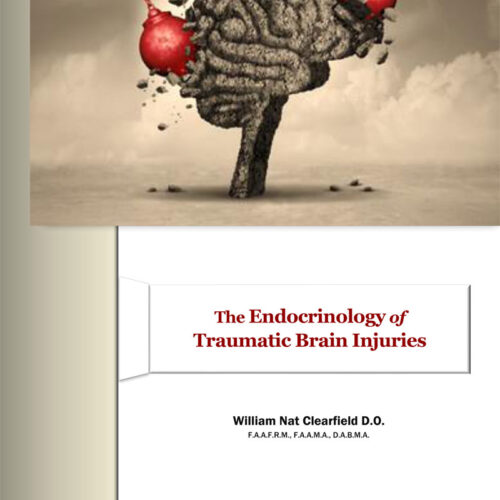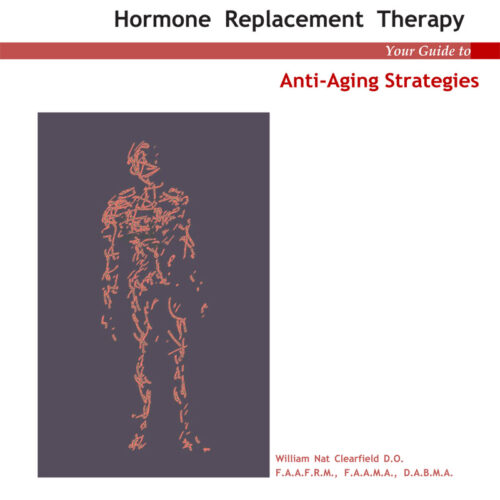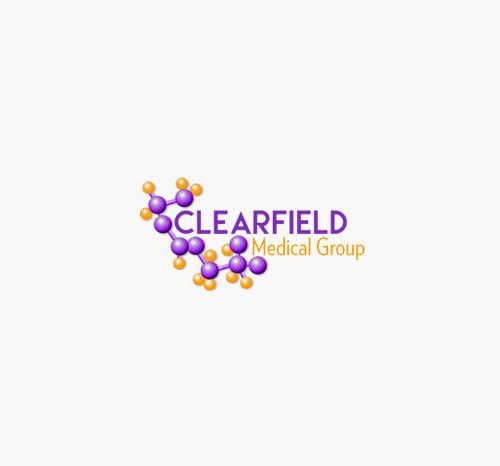2. Growth Hormone
Growth Hormone (GH), the “Holy Grail” of anti-aging galaxy, consists of 191 amino acids (proteins) linked in a specific manner in a specific order. (1)
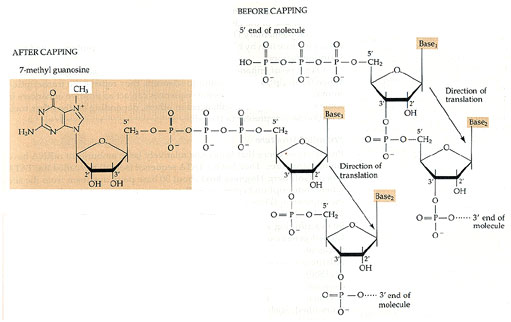
(Picture if you will, Legos ™ snapped together to make a windmill or a car or a boat and you get a sense of the specific nature and delicacy of Growth Hormone. We can take advantage of this order to create precursors, or secretagogues, to accentuate the positive, and limit the negatives of real Growth Hormone. See 2A. Protein Peptides)
Secreted by the anterior pituitary gland, GH stimulates growth and cell reproduction. It is released into the bloodstream in spurts or waves instead of continuously, peaks at bedtime, and has its greatest activity between 10 P.M. and 4 A.M.
When released into the bloodstream, HGH travels to various organs whose cells contain GH receptor sites. The liver is the site of action for growth hormone, converting them in to IGF-1, IGF-2, epidermal growth factor, vascular growth factor, nerve growth factor, and transfer growth factor. (2)
Youngsters with wide open growth plates grow tall and strong. After the growth plates close, age 17-19 on average, a steady, though diminished level of growth hormone is needed to maintain muscle strength, energy, mental clarity, memory, sense of wellbeing, libido, sleep, cholesterol profile, bone density, vision, skin tone, immune function, blood pressure, social skills, kidney, liver and heart function.
A 1991 study by Rudman, et. al., of twelve males with IGF-1 levels <350 were given 0.03 mg of Biosynthetic HGH per kilogram of body weight SQ 3x/week t=resulting in an:
- 8.8 percent increase in lean body mass
- 14.4 percent decrease in adipose-tissue mass
- 1.6 percent increase in average lumbar vertebral bone density (P less than 0.05 in each instance).
- Skin thickness increased 7.1 percent.
A non-treated group showed no significant change in lean body mass, adipose tissue, skin thickness, or bone density. (3)
Growth hormone, along with testosterone, produces significant gains in lean mass, strength and aerobic endurance with significant reductions in whole body and trunk fat in older men. (4)
A 10-year prospective study revealed improved muscle strength in the first half of the study period and a preservation of that muscle strength and function in the second half of the study. (5)
Adequate growth hormone supplementation improves lipid profiles, induces weight loss from body fat, normalizes IGF-1 blood levels and shows no untoward effects on insulin sensitivity. (6)
GH replacement reverses the Metabolic Syndrome, decreases morbidity and mortality from cardiovascular disease, decreases visceral fat by 18%, subcutaneous fat by 6%, decreases diastolic BP by 5 mmHg, cholesterol by 11%, triglycerides by 15%, and increases insulin sensitivity by 21%. (7)
Elevated fat mass, metabolic syndrome signs and symptoms and risk of obesity is common with diminishing IGF-1 levels. (8-10)
GH improves quality and quantity of adult stem cells and endothelial progenitor
cells. With advancing age, we naturally see increased cardiovascular disease and a decreased in the GH/IGF-1 ratio. (EPC’s are a biomarker of cardiovascular health that also decline with age.) GH/IGF-1 restores EPC’s, improving their quantity and decreasing their senescence. (11-12)
GH improves nutritional status, quality of life and CV risk. (13-15) Growth hormone increases albumin and prolongs survival in patients with chronic liver failure.(16)It reduces neoplastic disease, modifies age-related pathology, and increases life span. (17)
Growth Hormonedeclines75% from young adulthood through midlife. The loss of growth hormone results in a decrease in lean body mass, expansion of adipose(fat) tissue and thinning of the skin. Growth hormone administration prevents cardiovascular disease, improves lung function, enhances sexual performance, and hair re-growth.
Growth hormone deficiency increases the risk of cardiovascular disease, with smaller hearts, lower cardiac output and higher serum lipid concentrations.
Growth hormone replacement results in reduction in triglycerides, total cholesterol, and LDL (“bad cholesterol”).
Thickening of the walls of the carotid arteries (which leads to strokes) are reduced, resulting in improved blood flow to the brain.
Growth hormone deficiency results in a two-fold increase in cancer as compared to normal levels, decreased vitality, energy, physical mobility, feelings of social isolation and diminished sexual function even with adequate sex hormone levels. There is no evidence growth hormone replacement increases the risk of cancer.
Basal metabolic rate can increase from 6-11% after 6 months of therapy. Across the board quality of life markers including energy, mood, pain sensitivity, emotional ability and physical mobility improved with growth hormone administration.
Benefits of adequate serum IGF-1 include increased energy, cardiac output, muscle mass, improved memory, libido, sleep, fat burning, lipid profile, bone density, vision, immune function, mood, wound healing, blood pressure control, social skills, and internal organ function, especially the kidneys, heart and liver.(18)
I Have a Growth Hormone Deficiency? (19)
Never Always
- My hair is thinning 0 1 2 3 4
- My cheeks are sagging 0 1 2 3 4
- My gums are receding 0 1 2 3 4
- My abdomen is flabby 0 1 2 3 4
- My muscles are slack 0 1 2 3 4
- 6 My skin is thin and dry 0 1 2 3 4
- It’s hard to recover from physical activity 0 1 2 3 4
- I am exhausted 0 1 2 3 4
- I don’t like the world. I tend to isolate myself 0 1 2 3 4
- I am continuously anxious and worried 0 1 2 3 4
Add up your Overall Score ____________: 10 or less: Satisfactory level. Between 11 and 20: Possible Growth Hormone Deficiency. 21 or greater Probable Growth Hormone Deficiency
Growth Hormone Deficiency Symptoms Include:
| Anxiety and/or depression
• Baldness • Decrease in sexual function and libido • Decreased muscle mass and strength • Difficult to concentration and lack of memory • Dry, thin skin • Elevated triglyceride levels • Fatigue • High levels of LDL (the “bad”) cholesterol • Insulin resistance • Lower tolerance to exercise • Reduced bone density • Sensitivity to heat and cold • Very low energy levels • Weight gain, especially increased abdominal waist circumference |
Decreased quality of life
• Sarcopenia • Loss of exercise capacity • Osteopenia • Loss of strength • Increased total and intra-abdominal fat Glucose intolerance • Dyslipidemia • Increased fragility of skin and blood vessels • Decreased skin thickness • Decreased muscle tone, increased droopiness • Decreased confidence and optimism • Decreased immune function |
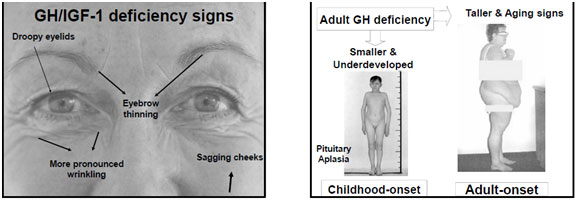
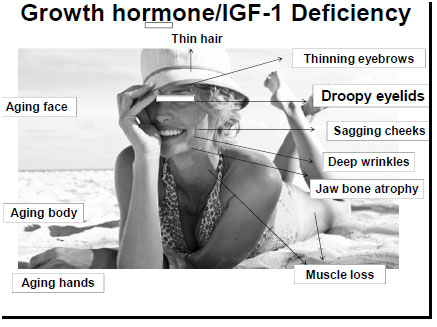
Lab Studies
Growth Hormone is monitored with IGF-1 levels. Optimal IGF-1 levels for adults are 300-350 ng/ml. Side effects are noted when the blood level exceeds 380 ng/ml.
IGFBP-3, the bound protein version of IGF-1 is often used to compare free and bound Growth Hormone levels. Only free IGF-1 is available for the body to utilize.
Side Effects
When discussing side effects of GH think PAGE:
- Paresthesia’s
- Arthralgia’s
- Glucose and insulin getting worse instead of better
- Edema
Treatment Dosage
Dosage of growth hormone is 0.1 mg/d subcutaneously in the abdomen, best given at bedtime. This may be increased to 0.2, 0.4, 0.8 to a maximum of 1.2 mg/day.
IGF-1 typically increases 100 ng/dl with 0.33 mg per day treatment.
Natural GH Enhancements
Decreased magnesium translates into decreased GH. A zinc deficiency equals an 83% drop in serum IGF-1. Lab rats feed a zinc deficient diet within two weeks exhibited an 83% drop in weight, 80% drop in serum zinc and a 69% drop in IGF-1 increasing to 83% by day 17.
Zinc repletion normalized serum zinc & increased serum IGF‐1 by
194% (P < 0.05) after 3 days. Serum IGF‐1 however, was not normalized until after 2.5 weeks of repletion. (20)
High zinc intake raises IGF-1 16%. Meat and fish modestly raise IGF-1 levels but never to height of zinc alone. (21)
There is an inverse relationship between IGF-1 and blood sugar and an inverse relationship between IGF-1 and sleep.
Growth Hormone and Traumatic Brain Injuries
GH deficiency is found in 35-40% of survivors of traumatic brain injury (TBI).
Untreated TBI induced hypopituitarism contributes to chronic neurobehavioral problems
months or even years following, not only moderate or severe head trauma, but mild “bumps” on the head also.
Any patient with a history of head trauma, and especially those with foggy thinking, memory impairments, outlandish, destructive or criminal behavior, requires a valuation for growth hormone deficiency. (22)
Patients treated with GH experience significant improvements in concentration, memory, depression, anxiety and fatigue. Pituitary failure can occur even in minor head injuries and is poorly recognized. (23-24)
Growth Hormone and Cardiovascular Disease
Growth hormone deficiency increases cardiovascular risk. Low growth hormone levels result in abnormal body composition, unfavorable lipid profile, increased fibrinogen levels, increased C-reactive protein levels, insulin resistance, early atherosclerosis, endothelial dysfunction and impaired left ventricular (LV) performance. (25)

IGF-1 in low normal range associated with increased AMI and stroke. Childhood or Adult GH Deficiency is associated with poor CV outcomes especially cardiomyopathy and improved by GHRT. (26)
GH-therapy of GH-deficient men reverses early atherosclerotic changes, namely increased thickness of the intima media of the common carotid artery & the carotid bifurcation in 11 GH deficient men (24-49 yr. old). (27) GH decreases oxidative stress (free radical formation) by 50%, and increases thyroid and androgen activities. (28-29) Cortisol levels decrease.
UntreatedGH deficient men revealed a 25% decrease in life years while GH women suffered a whopping 43% in life expectancy. (30)
Mortality in patients with chronic heart failure, renal carcinoma and on hemodialysis is more than double for those whose serum IGF-1 levels are in the bottom 50% (<150 ng/ml). (31-33)
Growth Hormone and Cancer
Similarly, there is an inverse relationship between IGF-1 and cancer and staging. In breast cancer patients, both severity and likelihood of metastasis was inversely related to serum IGF-1 levels. (34) Growth hormone and insulin-like growth factor I deficiency reduces neoplastic disease, modifies age-related pathology, and increases life span. (35)
Growth Hormone and Autism
Autism leaves patients with difficulty knowing priorities, socially isolated, and exhibiting inappropriate behaviors. Curiously, IGF-1 levels in autistic children are significantly lower than age matched “normal” peers. (36)
Growth Hormone and Schizophrenia
Schizophrenics have difficulty prioritizing, lack inner peace and exhibit a bowed, tense back. They are haunted with:
- Delusions: false beliefs that are not part of the person’s culture and do not change. The person believes delusions even after other people prove that the beliefs are not true or logical.
- Thought disorders are unusual or dysfunctional ways of thinking, for example: “disorganized thinking” => a person has trouble organizing his or her thoughts or connecting them logically.
- Hallucinations: things a person sees, hears, smells, or feels that no one else can see, hear, smell, or feel. “Voices” are the most common.
Reduced or cured by growth hormone therapy: GH improves logical and sound thinking, evidence-based beliefs, accurate senses
In healthy patients, growth hormone surges during the night. These peaks are absent, due to abnormal dopamine and serotonin activities in schizophrenic’spatients. (37)
Human Growth Hormone S/S(38)
| S/S HGH Deficiency | S/S HGH Excess |
| Waist and hip fat
Loss of muscle Loss of strength Increased Fatigue Bone and Joint Pain Poor Libido Anti-social behavior Thin skin/sagging/wrinkling
|
Carpal tunnel syndrome
Severe arthritis pain Edema/water retention High blood pressure BPH/Prostate Pain Aggressive behavior
|
References
(1) http://marshanunleymd.files.wordpress.com/2011/05/hgh-dna-sequence1.gif
(2) Tai, P., 8 Secrets to Anti-Aging, Health Secrets USA, 2007;95.
(3) Rudman D, Feller AG, Cohn L, Shetty KR, Rudman IW, Draper MW. Effects of human growth hormone on body composition in elderly men. Horm Res 1991;36 Suppl 1:73-81
(4) Sattler FR, Castaneda-Sceppa C, Binder EF, et al. Testosterone Growth Hormone Improve Body Composition and Muscle Performance in Older Men. J. Clin Endocrinol Metabol. 2009 Jun;94(6):1991-2001
(5)Gotherstrom G, Bengtsson BA, Bosaeus I, et al. 10-year prospective study of metabolic effects of GH Replacement in Adults. J. Clin Metab. 2007 Apr;92(4):1442-1445.
(6) Barclay L. Growth Hormone Reduces Weight, Fat Mass but Not Lean Body Mass. Medscape 2004 Feb 26.
(7) Jansen, B., Growth Hormone Cuts Adiposity in Syndrome X, Internal Medicine News, Sept. 1, 1997, 71.
(8) Marin P, Int J Obes Relat Metab Disord 1993
(9) Efstratiadis G, Angiology, 2006
(10) Maison P, Diab Med. 2007
(11) Devin JK et al. The effects of growth hormone and insulin-like growth
factor-1 on the aging cardiovascular system and its progenitor cells. Curr
Opin Investig Drugs. 2008 Sep; 9(9):983-92..
(12) Thum, T et al. Age-Dependent Impairment of Endothelial Progenitor Cells
Is Corrected by Growth Hormone Mediated Increase of Insulin-Like Growth
Factor-1. Circulation Research February 16, 2007
(13) Feldt-Rasmussen B, Lange M, Sulowicz W, Gafter U, Lai KN, Wiedemann J, Christiansen JS, El Nahas M; APCD Study Group. Growth hormone treatment during hemodialysis in a randomized trial improves nutrition, quality of life, and cardiovascular risk. J Am Soc Nephrol. 2007 Jul;18(7):2161-71
(14) Rudman D, Feller AG, Nagraj HS, Gergans GA, Lalitha PY, Goldberg AF, Schlenker RA, Cohn L, Rudman IW, Mattson DE. Effects of human growth hormone in men over 60 years old. N Engl J Med. 1990 Jul 5;323(1):1-6
(15) Colao A, Di Somma C, Spiezia S, Savastano S, Rota F, Savanelli MC, Lombardi G. Growth hormone treatment on atherosclerosis: results of a 5-year open, prospective, controlled study in male patients with severe growth hormone deficiency. J Clin Endocrinol Metab. 2008 Sep;93(9):3416-24
(16) Li N, Zhou L, Zhang B, Dong P, Lin W, Wang H, Xu R, Ding H. Recombinant human growth hormone increases albumin and prolongs survival in
patients with chronic liver failure: a pilot open, randomized, and controlled clinical trial. Dig Liver Dis. 2008 Jul;40(7):554-9
(17) Growth hormone and insulin-like growth factor I deficiency reduces neoplastic disease, modifies age-related pathology, and increases life span.
Endocrinology. 2005;146(7):2920-32 b
(18) Tai, P., 8 Secrets to Anti-Aging, Health Secrets USA, 2007;102.
(19) Hertoghe T. BHRT Symposium Syllabus, A4M, Feb 25-28, 2015;6.
(20) Dørup I, Flyvbjerg A, Everts ME, Clausen T. Role of insulin-like growth factor-1 and growth hormone in growth inhibition induced by magnesium and zinc deficiencies. Br J Nutr. 1991 Nov;66(3):505-21. Institute of Physiology, University of Aarhus, Denmark
(21) Larsson, Wolk, Brismar, Wolk, Association of Diet with Serum IGF-1 in Middle Aged and Elderly Men. Am. J. Clin. Nutr 2005 May 81(5)1163-7
(22) Popovic C Et al. Hypopituitarism following traumatic brain injury. Growth HormIGF Res. 2005 Jun;15(3):177
(23)Rothman MS, The neuroendocrine effects of traumatic brain injury. J Neuropsychiatry Clin Neurosci. 2007 Fall;19(4):363-72.
(24) Behan LA et al. Neuroendocrine disorders after traumatic brain injury. J Neurol Neurosurg Psychiatry. 2008 Jul;79(7):753-9
(25) Colao A Et al. Beginning to end: Cardiovascular implications of growth hormone (GH) deficiency and GH therapy.Growth Horm IGF Res. 2006 May 9.
(26) Gibney et al. The effects of 10 years of GH in adult GH deficient patients. J Endocrinol Metab 1999 August
(27) Pfeifer M et al, J Clin EndocrinolMetab, 1999, 84: 453-457.
(28-29) Evans LM, Davies JS, Anderson RA, Ellis GR, Jackson SK, Lewis MJ, Frenneaux MP, Rees A, Scanlon MF. The effect of GH replacement therapy on endothelial function and oxidative stress in adult growth hormone deficiency. Eur J Endocrinol. 2000 Mar;142(3):254‐62. Section of Endocrinology, Diabetes and Metabolism, University Hospital of Wales, Cardiff, UK.
(30) Besson A., Salemi S, Ganati S, Jenai A, Hom R, Mullins PS, Mullis PE. Reduced longevity in untreated patients with isolated growth hormone deficiency. J Clin Endocrinol Metab. 2003;88(8):3664-7 Bern, Switzerland.
(31) Rasmuson T, Acta Oncol. 2004;43(8):744-8
(32) Fernandez-Reyes MJ, IGF-1 is an Independent Predictor of Mortality; J. Nephrol. 2002
(33) Petretta M, Growth Hormone IGF Res. 2007
(34) Agurs-Collins T, Cancer Detect Prev 2000
(35) Endocrinology. 2005;146(7):2920-32
(36) Riikonen R, Makkonen I, Vanhala R, Turpeinen U, Kuikka J, Kokki H. Cerebrospinal fluid insulin-like growth factors IGF-1 and IGF-2 in infantile autism. Dev Med Child Neurol. 2006 Sep;48(9):751-5.
(37) Kahn RS, Davidson M, Hirschowitz J, Stern RG, Davis BM, Gabriel S, Moore C, Davis KL. Nocturnal growth hormone secretion in schizophrenic patients.
(38) Tai, P., 8 Secrets to Anti-Aging, Health Secrets USA, 2007;103.
Other Growth Hormone References
1)Vierhapper H, Nowotny P, Waldhäusl W. Treatment with growth hormone suppresses cortisol production in man. Metabolism 1998 Nov;47(11):1376-8;
2) Rodriguez-Arnao J, Perry L,Besser GM, Ross RJ. Growth hormone treatment in hypopituitary GH deficient adults reduces circulating cortisol levels during hydrocortisone replacement therapy. Clin Endocrinol (Oxf) 1996 Jul;45(1):33-7;
3) Weaver JU, Thaventhiran L, Noonan K, Burrin JM, TaylorNF, Norman MR, Monson JP. The effect of growth hormone replacement on cortisol metabolism and glucocorticoid sensitivity in hypopituitary adults. Clin Endocrinol (Oxf) 1994 Nov;41(5):639-48;
4) Carani C, Granata AR, De Rosa M, Garau C, Zarrilli S, Paesano L, Colao A, Marrama P, Lombardi G.The effect of chronic treatment with GH on gonadal function in men with isolated GH deficiency. Eur J Endocrinol 1999 Mar;140(3):224-30;
5) Belgorodsky A, Martinez A, Domene H, Heinrich JJ, Bergada C, RivarolaMA. High serum sex hormone-binding globulin (SHBG) and low serum non-SHBG-bound testosterone in boys with idiopathic hypopituitarism: effect of recombinant

